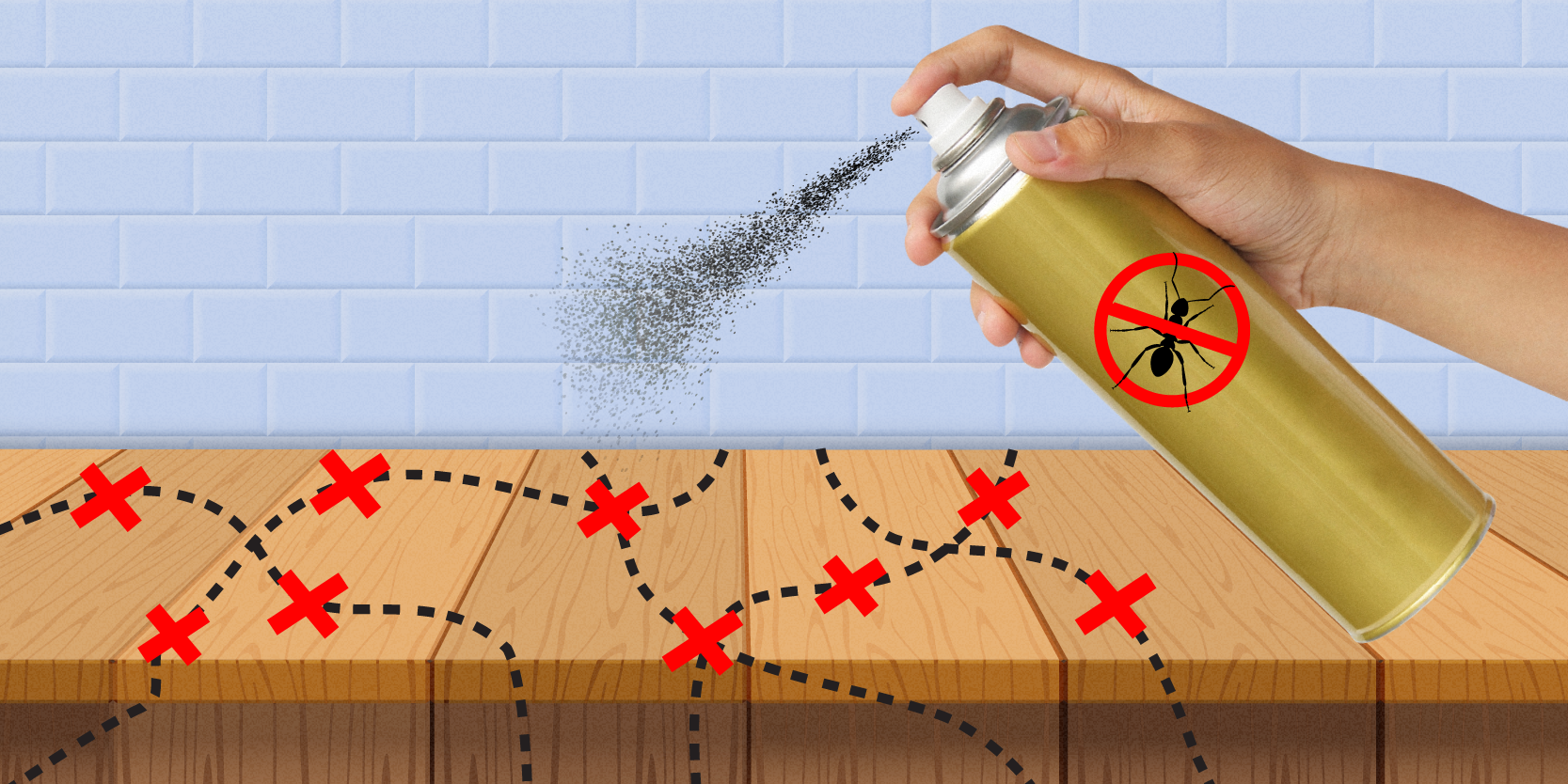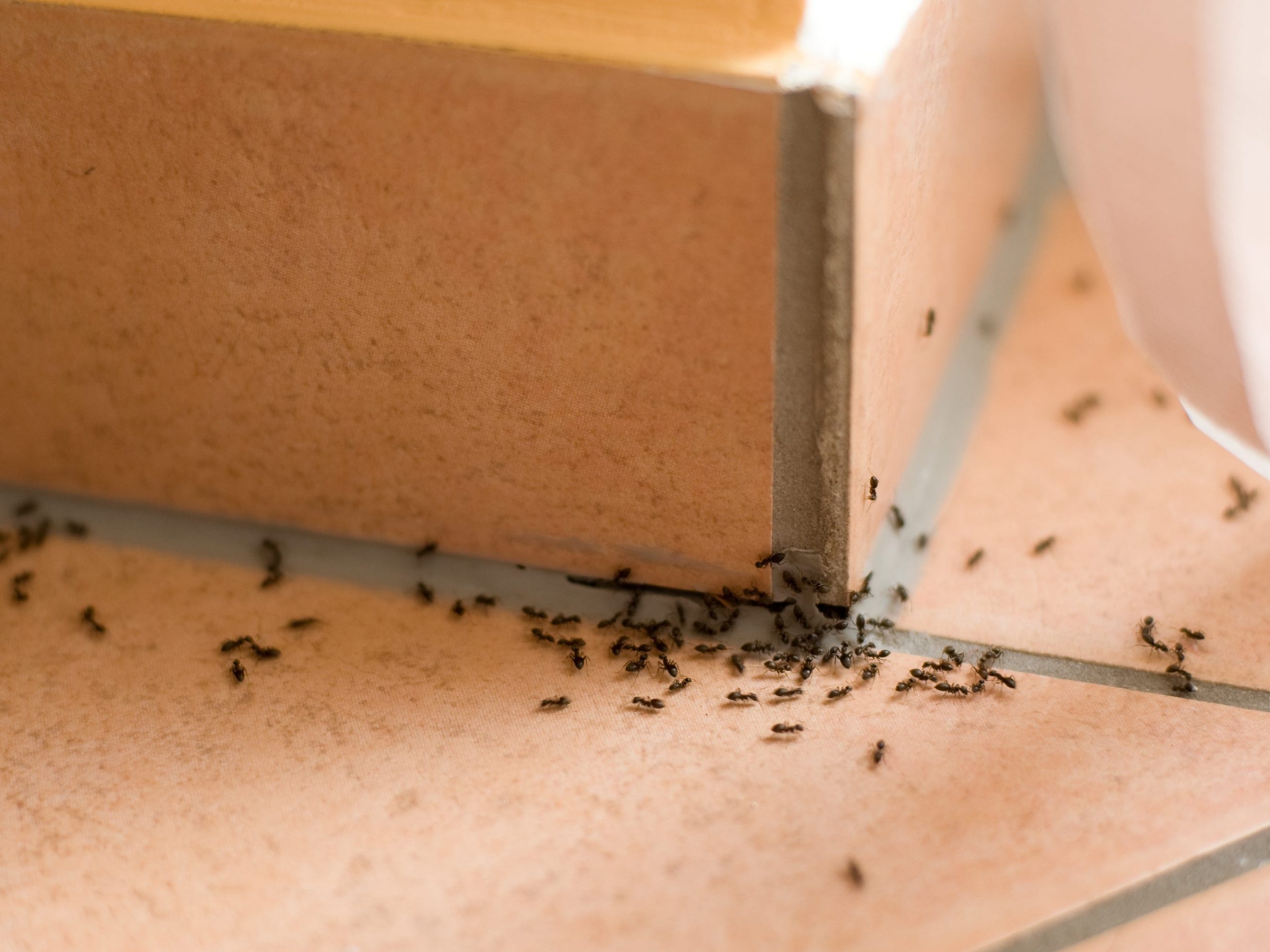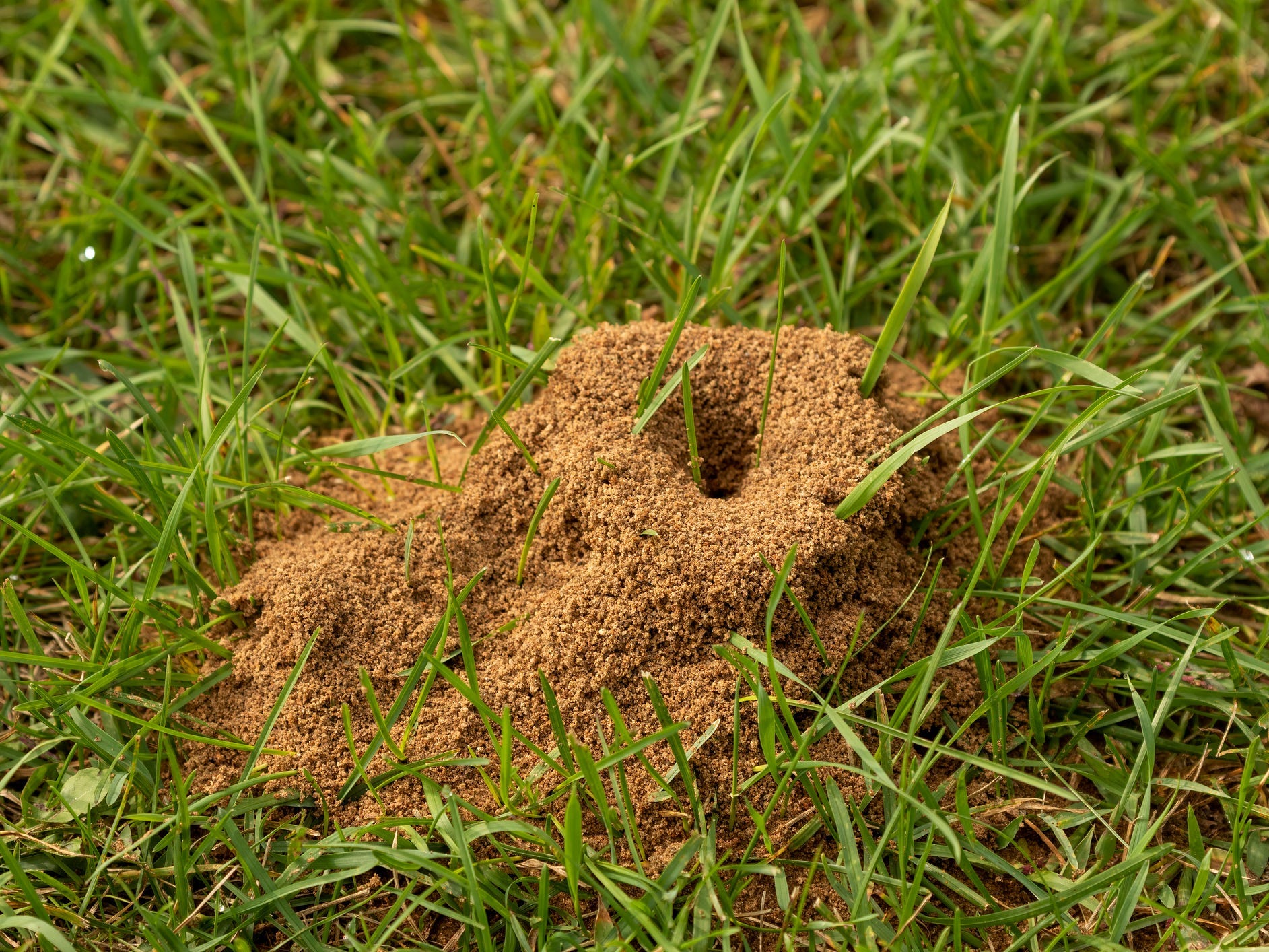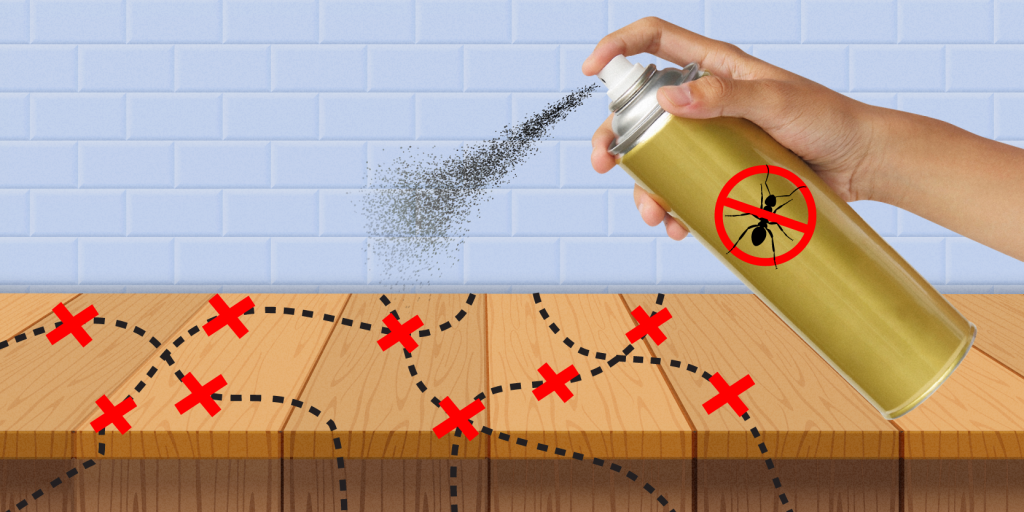
Rachel Mendelson/Insider
- To eliminate ants, try Borax, diatomaceous earth, or peppermint and lavender essential oils.
- Commercial baits and pesticides are often toxic to children and pets and should be used sparingly.
- Ants are attracted to food and moisture, so keep your home clean and dry to keep them from returning.
- Visit Insider's Home & Kitchen Reference library for more stories.
Dealing with an ant infestation is certainly no picnic – but there are a series of practices and tricks that will help to evict the little pests for good if you're willing to get creative and put in a little work around the house.
We spoke to Godfrey Nalyanya, entomologist and technical services manager of Rentokil North American Pest Control and Noah James, owner and landscaper at Liberty Lawn Maintenance, to get their insights on why you might have ants bunking in your home, what you can do about it, and how you can take preventative measures for next summer.
It wouldn't be summer without a couple of the little pests making their way inside your shoes or clothes – but if you've noticed that ants have started moving into your kitchen or pantry it's time to take action. Below are several methods to either exterminate the creepy crawlers or lure them away from your home.
Borax
Along with cleaning laundry, Borax - also known as sodium borate - is a natural mineral that will kill any ants that ingest it. Consider mixing Borax with equal parts water and sugar to make a syrup, and leaving it in the corners where you've noticed ants. This method will work to kill the entire colony in roughly 24 to 48 hours, as the worker ants will bring the liquid back to the nest. Note that Borax can cause irritation in pets and should be used sparingly around pets and children.
Diatomaceous earth
Diatomaceous earth (DE) looks like white powder, but it's actually a naturally occurring substance made from the fossils of algae called diatoms. It offers a non-toxic and natural option for eliminating ants and any other crawling insect. Apply the powder in the areas you've noticed ants or anywhere you don't want them. The diatomaceous earth will then stick to the ants, dry out their exoskeletons, and exterminate them.
Essential oils

grafvision/Getty Images
If you're looking for a more natural approach, you can use natural oil repellents such as peppermint and lavender essential oils to repel the little pests from the hot spots in your house rather than kill the colony. According to James, some people find that cinnamon works as well.
Peanut butter and honey
If you've eliminated all your food sources and potential entry points around the house, you can always coax the remaining ants to leave the home by putting a bait like peanut butter or honey outside of your home. "In terms of baiting the ants, although it sounds like a lot of work, you can easily make your own bait in a snap with some peanut butter mixed with honey or white bread crumbs mixed with either sugar or powdered sugar - both will yield results!" says James.
If you're worried about an outdoor bait attracting more ants or want to ensure the colony near your house is killed off, consider adding a Borax to the DIY mixture.
Ant traps and poison
Ant traps and poison are a tried and true method when it comes to eliminating pests, but James warns that pesticides are very bad for the environment, so be careful when applying these chemicals in your home. Traps might be a good option for cottages or summer homes as they only need to be replaced or maintenanced every three months and will take effect in about 24 hours.
How to keep ants out of the house

DZM/Getty Images
It might seem like there's nothing you can do to keep ants out year after year - but there are certain tricks that you may be missing that will make all the difference.
- Clean up food and spills: "The best piece of advice to keep ants from getting into your home is to keep it clean," says Nalyanya. If there is food or residue, thoroughly clean the area in order to ensure there's nothing for the ants to graze on. If the ants congragated near a water source, make sure to remove the water or seal up any cracks to ensure there are no sources they could be getting into.
- Check your piping: It is also important to make sure you don't have any leaks around your pipes that ants could be attracted to, according to Nalyanya. "Take an inventory of your home to make sure any cracks or crevices are sealed," he says.
- Keep food stored away and not out in the open: Properly sealing and storing the food in your home is vital. According to Nalyanya, ants are attracted to moisture and food, so they will try to make their way into a home to find those items, especially in the summer when moisture outside is scarce.
- Check for gaps and cracks in your foundation: "Since ants are so small, they can get into a home through any cracks, crevices, or gaps throughout the entire house," says Nalyanya. Ants also get to the interior of the home around doors and thresholds, through cracks in the floor as well as through any penetrations that are not sealed properly.
How to remove ants from your yard

Karel Bock/Getty Images
Removing ants from the outdoors versus indoors is going to be a completely different story. You might not necessarily need to remove ants from your yard at all. But if you're finding it difficult to keep them from entering your home or you're worried about ants biting or stinging you or your kids and destroying your landscaping, it might be necessary to take the next steps.
- Ant spray: If you're going to try an ant spray in your yard, start by mowing your grass. From there, spray your entire yard with an insect killer that contains bifenthrin (pyrethroid insecticide). Note that this will kill other insects as well and may harm dogs, so be sure to read the label before trying this method.
- Pour soap and water on the anthill: If you've located the anthill in question, consider flooding the nest with a mix of dish soap and water. This will destroy the anthill and kill the colony without the same risks that come with using chemicals or poison.
- Target anthills with Borax: Like the soap and water method, a mixture of Borax and sugar will quickly wipe out an entire colony. Just pour the mixture directly into the anthill or in the surrounding area.
- Diatomaceous earth: Simply spread the diatomaceous earth 6 to 12 inches away from doorways, plants, or any crevices leading into your house.
Insider's takeaway
While wiping out a colony of ants can sometimes seem like an endless loop, taking action and following up with preventative measures is much easier than you might think. Ants need both food and water to survive the summer, and can sneak into your home to feast on crumbs through small gaps in the foundation and even leaky plumbing. Ensuring your home is sealed tight and free from open food and water sources, and that your backyard is free of anthills, will be your best bet in evicting the little pests.
